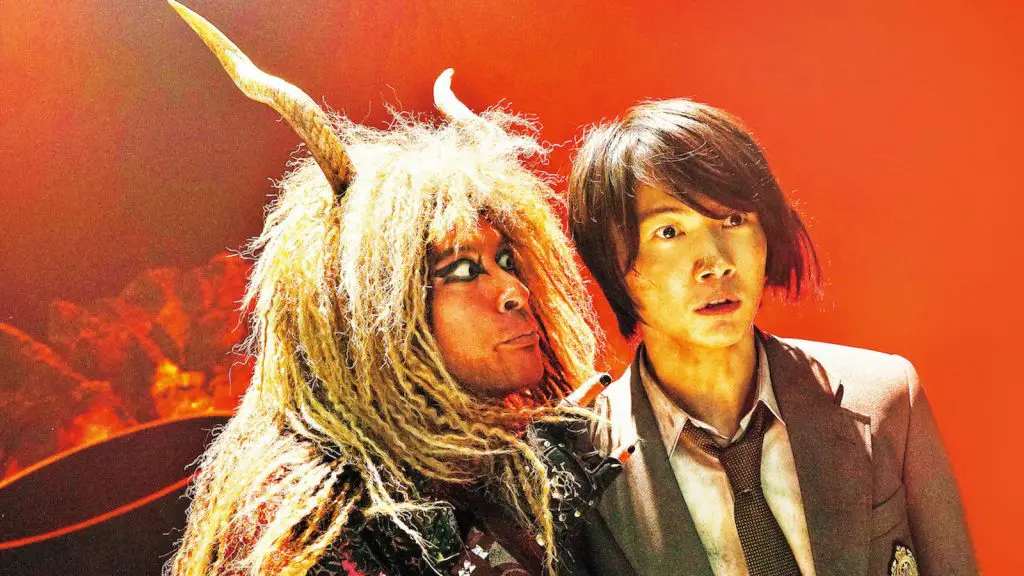
While political machines scrape and tussle, and countless protesters shout their beliefs that gay marriage is wrong, peverse, and unnatural, there is another side to all this that either side has not known or completely ignored for the sake of making their beliefs easier to put together, as this would easily put many tangles into the mix: There are gay Christian teenagers in the United States, some in St. Paul Minnesota as filmmakers Kirk Marcolina & Larry Grimaldi strive to show in “Camp Out”, and all of them struggle with much more than just being teenagers. Their own churches have either literally or figuratively ostracized them, and they just want to find a place of acceptance, of understanding, where being gay isn’t such a factor from preventing them their right to pursue their faith.
The Naming Project Camp, led by Pastor Jay, is that haven for these teens, some who have had supportive parents and friends, and others who are even more confused and perhaps even scared that they have been abandoned by their religion. The camp is there to show them that this isn’t the case. There are not only other teens like them, but they should also know that their beliefs are theirs and while others may not be happy about who they are, they shouldn’t worry. Some have open minds, some don’t.
It’s all a nice, tidy package, with the usual set of quirky teenagers. Christine, an Elvis Presley fan, prepares to go to the camp, and there’s a keen observation set forth here in that Christine’s dog doesn’t discriminate, doesn’t mind, doesn’t care that she’s gay. She’s a person, a girl, and she lives like anyone else. Jesse looks forward to meeting gay teens his age, while he sees his parents as the most unique pair he’s ever met because not only are they ok with his sexuality, but they easily joke about certain aspects of it as well.
It would be easy to brand all this as propaganda, especially with all that’s riling up many sects in the United States. But it’s not, considering that these teenagers have not be seen or heard from before. However, there are many questions raised throughout “Camp Out” and not because of the teenagers. Rather the methods of filmmaking. Some gloss pervades the introduction of these teens. We know who they are right away, but in such a short time, it feels more like we’re given just this much to think this way about them and that’s it. There’s definitely a heavy whiff of reality TV through a lot of this, obviously from Marcolina and Grimaldi’s own careers.
But even so, you look at these teenagers and it’s remarkable what they’ve found themselves in the middle of, the missing link of all the arguments about homosexuality in religion and politics, though with all the venom spewed forth through the media in many aspects, with sometimes-passionate hatred, perhaps it’s best to be missing. It’s enough to find yourself first and figure out where you are in that time of life and who you are. Then, there is one person who seems to be missing from this entire documentary. While Christine, Jesse, the insightful Scancy, and the introverted Tim and others discuss their lives and spend time with each other, where’s 16-year-old Kasano in all this? He’s the only teen of this camp of a different color and we do see him with the other campers, but it’s either in listening or just in being there. Who is he? When did he come out? What does he believe? How does he feel about all this? What has this unique camp experience been like for him? Marcolina and Grimaldi have a tendency to go toward the overtly dramatic, which isn’t bad for a few minutes, but there’s never an all-around feeling to be had, that everyone’s getting a word or two in and while Kasano does when he talks about what kind of mate he’d want to have in his life, he’s just a part of this group and never becomes a full character. Is he more comfortable being a part of this group when they’re together with Pastor Jay or the other pastor or one of the counselors, watching the coffeehouse talent show or singing around a campfire? Is it just enough for him to be involved in his faith in this way? Maybe it was a matter of not including more of him because it would look like he was being singled out and given a voice because of his color, but who cares what it would look like?
These are the kind of push-pull feelings present while watching “Camp Out.” Some teens we’d want to see more, others we’d want to see less, if only because they seem like teenagers we either knew when we were teenagers or just that there’s enough of them to go around for 20 minutes, enough to want to see other teens speak more about who they were in the “straight world” and what they had to conform to and how painful conforming might have been before they came upon this camp. Admittedly though, it is noble that this has been brought forth. These teenagers exist and no doubt there are others like them, as well as adults with the same conflicts as them. Despite some of the misgivings, “Camp Out” is an important Post-It note to this country that it isn’t as simple as political parties or churches would like to try to make it. It is much more complicated in the real world.
